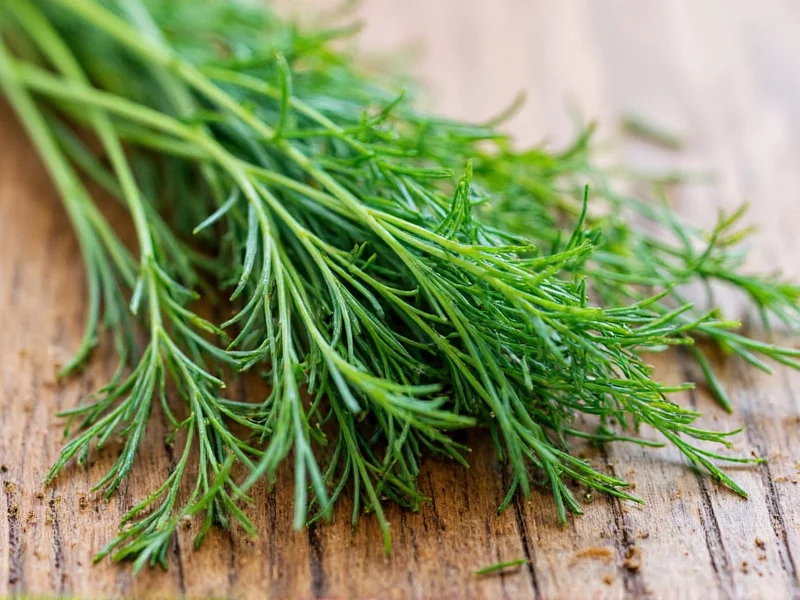Many home cooks wonder is dill a spice or herb when they encounter both fresh dill weed and dried dill seed at the grocery store. The confusion stems from dill's dual culinary identity. Botanically speaking, dill qualifies as an herb because we primarily use its fresh leaves (dill weed) for flavoring. However, the mature seeds function as what many consider a spice in cooking applications.
Herb vs. Spice: Understanding the Distinction
The fundamental difference between herbs and spices lies in their plant origin. Herbs typically come from the leafy green parts of plants, while spices derive from other plant components like seeds, bark, roots, or fruits. This explains why dill occupies both categories depending on which part you're using.
| Characteristic | Herbs | Spices |
|---|---|---|
| Plant Origin | Leafy green parts | Seeds, bark, roots, fruits |
| Flavor Profile | Fresher, more delicate | Stronger, more concentrated |
| Common Forms | Fresh or dried leaves | Dried seeds, powders, whole forms |
| Dill Example | Dill weed (fresh leaves) | Dill seed (mature fruit) |
Dill Weed: The Fresh Herb
Dill weed refers to the delicate, feathery leaves of the dill plant. Chefs prize fresh dill for its bright, grassy flavor with subtle anise notes. This culinary uses of dill herb shine in applications where you want a fresh, aromatic quality without overwhelming other ingredients.
When incorporating fresh dill into dishes, add it near the end of cooking to preserve its delicate flavor. Heat diminishes dill weed's aromatic compounds, making it perfect for:
- Cold dishes like potato salad and tzatziki sauce
- Fish and seafood preparations
- Salad dressings and vinaigrettes
- Vegetable dips and yogurt-based sauces
Dill Seed: The "Spice" Component
While dill weed comes from the leaves, dill seed develops from the plant's flowers. These small, oval seeds have a stronger, more pungent flavor with pronounced caraway-like notes. Many people searching for difference between dill weed and dill seed want to know they're not interchangeable in recipes.
Dill seed works best in applications requiring longer cooking times:
- Pickling brines (the classic use for dill seed)
- Bread recipes, especially rye and sourdough
- Stews and hearty soups
- Spice blends for meats and vegetables
Nutritional Profile and Health Benefits
Both forms of dill offer nutritional advantages. Fresh dill weed contains significant vitamin C and A, while dill seed provides dietary fiber and manganese. Research indicates potential dill herb nutritional benefits including antioxidant properties and digestive support.
A single tablespoon (6.6g) of dill seed contains:
- 22 calories
- 1g protein
- 1g fat
- 3g carbohydrates
- 1g dietary fiber
- 22mg calcium (2% of daily value)
Growing and Storing Dill Successfully
For gardeners interested in growing dill in home garden applications, this cool-weather herb grows easily from seed. Plant dill directly in well-draining soil after the last frost, as it doesn't transplant well due to its taproot. The plant reaches maturity in 40-60 days and self-seeds readily.
Proper storage extends dill's shelf life significantly. To maximize freshness:
- Wrap fresh dill weed in a damp paper towel and store in an airtight container in the refrigerator
- Place dill stems in a glass of water (like flowers) and cover loosely with a plastic bag
- Freeze dill weed in ice cube trays with water or oil for long-term storage
- Store dill seed in an airtight container away from light and heat
Substitutes When Dill Isn't Available
If you're wondering how to store fresh dill or need alternatives, several herbs can mimic aspects of dill's flavor profile. Fresh tarragon offers the closest anise-like notes, while fennel fronds provide similar texture and mild licorice flavor. For dill seed substitutions, caraway or celery seed work well in pickling recipes.
Remember that no substitute perfectly replicates dill's unique flavor combination. When possible, seek out fresh dill at farmers markets or grow your own for the best culinary results.
Common Questions About Dill
Is dill seed the same as dill weed?
No, dill seed and dill weed come from different parts of the plant. Dill weed refers to the fresh leaves, while dill seed is the mature fruit of the dill plant. They have distinct flavor profiles and culinary uses.
Can I substitute dill seed for dill weed in recipes?
Generally no, as they have different flavor intensities and characteristics. Use 1 teaspoon dill seed for every 1 tablespoon fresh dill weed, but recognize the flavor profile will change significantly.
How long does fresh dill last in the refrigerator?
Properly stored fresh dill typically lasts 7-10 days in the refrigerator. Wrap it in a damp paper towel inside an airtight container, or place the stems in water covered with a plastic bag.
What dishes pair best with fresh dill?
Fresh dill complements fish, potatoes, cucumbers, yogurt, eggs, and vegetables exceptionally well. It's essential in Scandinavian gravlax, Greek tzatziki, and Eastern European borscht.
Why does my dill plant keep dying?
Dill requires full sun, well-draining soil, and moderate watering. Common issues include overwatering (leading to root rot), insufficient sunlight, or transplanting mature plants (dill has a taproot that doesn't handle disturbance well).











 浙公网安备
33010002000092号
浙公网安备
33010002000092号 浙B2-20120091-4
浙B2-20120091-4